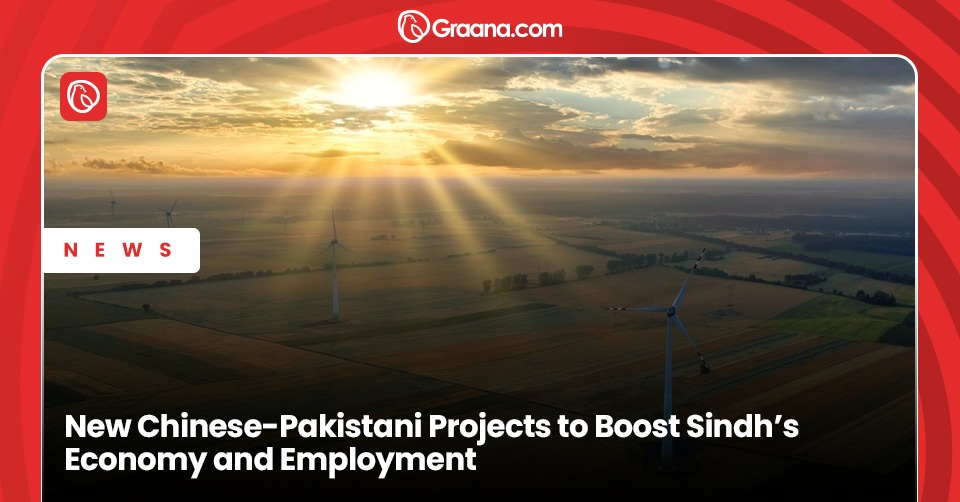
Source: Graana.com
Chinese investors, in collaboration with Pakistani diplomats, have formalized agreements through memorandums of understanding (MoUs) for five significant projects in the sectors of transportation, healthcare, energy, and agriculture. The MoUs were signed in Karachi with the backing of the Sindh provincial government.
The agreements encompass several key initiatives: the local assembly of electric vehicles, the domestic production of solar panels, manufacturing of slow-release fertilizers, algae farming, and the establishment of a state-of-the-art medical city within the Dhabeji Special Economic Zone (SEZ).
The signing ceremony was hosted by Sindh Energy Minister Nasir Hussain Shah and attended by Sindh Senior Minister Sharjeel Inam Memon and Chief Minister’s Special Assistant Syed Qasim Naveed Qamar. After the event, Qamar guided the Chinese delegation on a tour of the Dhabeji SEZ, where they expressed keen interest in setting up various industrial ventures. Qamar emphasized that the Dhabeji SEZ holds strategic importance as it is the only zone connected to the China-Pakistan Economic Corridor (CPEC).
In a media interaction, Sharjeel Memon highlighted the investors’ enthusiasm for establishing a medical city in Pakistan, and reassured them that the Sindh government would extend all necessary support. He also touched upon the provincial government’s initiative to introduce electric vehicle (EV) taxis, which would not only create employment opportunities for young people but also contribute to environmental sustainability by reducing carbon emissions. The electric taxis are expected to provide affordable transport options for the public.
Memon also commended Qasim Naveed Qamar for his outstanding work since assuming his position and noted the significant potential of the medical city, which could create up to 50,000 jobs. He also pointed out that the medical city could become a hub for the export of pharmaceutical and surgical products. Additionally, the Dhabeji SEZ offers a 10-year tax exemption to businesses established there, which will provide substantial incentives to investors.
Qamar further remarked on the importance of processing local granite, which is currently exported, processed abroad, and then re-imported for use in local construction. He noted that Thar granite, for example, was processed overseas and later used in the construction of the FTC building.
Sindh Energy Minister Nasir Hussain Shah also addressed the pressing need for increased fertilizer production. He revealed plans for a coal gasification plant to be built on a 200-acre site, which would significantly enhance the country’s energy production. Additionally, solar parks are being developed, which are expected to play a crucial role in alleviating Pakistan’s energy deficit.
Shah also shared details about the pricing of electricity generated from solar parks, which will be sold to consumers at Rs18 per unit. The Sindh Electric Power Regulatory Authority (SEPRA) and the Sindh Transmission and Distribution Company (STDC) will oversee the pricing and distribution of this electricity. In response to a question, Shah pointed out that while three federal representatives are part of the K-Electric management, there are currently no representatives from Sindh.
Dubai’s residential real estate market maintained its upward momentum in November 2025, with the latest…
Saudi Arabia’s Real Estate General Authority (REGA) has announced the launch of a new platform…
Dubai: Tomorrow World Group, a global enterprise with a 20-year presence in the emirate, has…
Islamabad: The Capital Development Authority has begun a citywide rehabilitation and upgrading campaign, starting…
Dubai: The emirate’s real estate sector continued its strong performance in November 2025, posting transactions…
The 19th Real Estate Development Summit Saudi Arabia Luxury Edition ended after two days of…